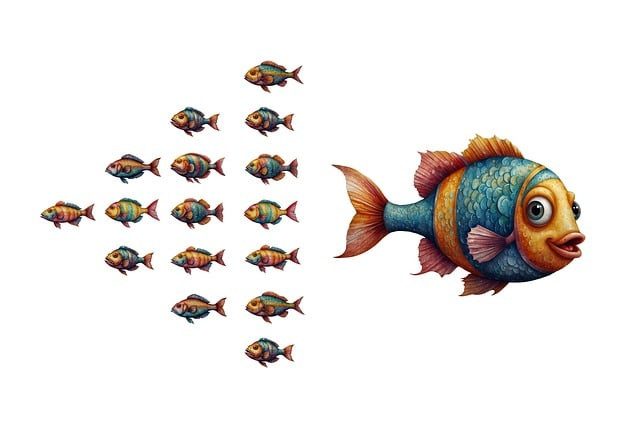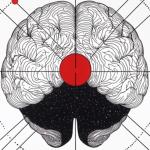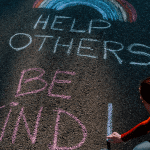Just kidding. I can’t even remember what I did last summer.
What Did You Do Over Summer Vacation?
It’s a common question in US schools: “What did you do during summer vacation?” Sixty days of fun! There I was at one of daughter’s homes, enjoying our stay, seven hundred miles away, when I got the call: “Our home air conditioning is not working.” I guess I could have let them roast, or pay a lot of money for a hotel.

In ninety-degree humid weather, and four people in the house, this was an emergency. Not that I had air conditioning for the first twenty-two years of my life. I have memories of working in the hot wheat fields, loading heavy bales of hay onto a wagon and stacking them in a hot, poorly ventilated barn. Regardless, we cut our visit short and went home. Times change.
Fortunately, I had planned for this and had a new, high efficiency HVAC unit in my garage. Intuition. Over the week, in sweltering heat and humidity, we replaced the old unit. I was tempted to take shortcuts, but by adhering to EPA regulations, we prevented further global warming and other issues, despite the increased cost.
I don’t like increased costs, but one chlorine atom in older types of freon can destroy over 100,000 ozone molecules, which is what happened to the ozone layer that protects us from skin cancer and eye cataracts. Restricting freon release let the ozone layer heal.
After a week of driving followed by a week of exhausting heat, bone weary, I was looking for a day of downtime. This morning my wife greeted me with, “I want you to look at the dryer.” Argh!
I have the answers. But having a lot of knowledge, education, and experience working in various fields is a curse. It means you get to do everything.
My AI beta reader would tell me this preface has little to do with the following blog article. Bah, humbug! It’s relevant!
Now this is what I’m talking about:
“… applying all diligence, in your faith supply moral excellence, and in your moral excellence, knowledge, and in your knowledge, self-control, and in your self-control, perseverance, and in your perseverance, godliness, and in your godliness, brotherly kindness, and in your brotherly kindness, love. For if these qualities are yours and are increasing, they render you neither useless nor unfruitful in the true knowledge of our Lord Jesus Christ. For he who lacks these qualities is blind or short-sighted, having forgotten his purification from his former sins.” – 2 Peter 1: 5-9 (NASB)
(I love it when AI corrects the Bible verse – those interpreters don’t know how to write. ☹)
I also have answers in religion
I study God. I’m just a speck to God, but God loves this speck, so God lets me live and continue to irritate and challenge everyone. The God of the universe, who loves all people, including all on this planet, and any potential people on billions of other planets, lets me live and study God.
It wasn’t always this way. The beginning phase of Judaism is in stark contrast to being human and making errors. For around 20 offenses, the penalty was death. These death offenses included hitting or cursing your father and mother, having sex with an animal, disrespecting the Sabbath (weekly holy day), having sex with a slave who is engaged, adultery, being a medium or sorcerer, and disrespecting God. Oops!
Like Judaism, the earliest Greek law, founded by Draco, had death for all offenses. Other ancient cultures, like the Sumerian and Assyrian, were a bit more understanding and lenient.
Law holds inherent value, yet I’ve always maintained that creating a law inevitably leads people to find ways to circumvent it. Is this what we want? It’s something to ponder when we create new laws and punishments, and I write about it in other forums.
Maybe I deserve death. I’ve been in death situations many times. I won’t enumerate. I’ve broken a few laws. The point: God lets me live. You too.
Christianity differs from other religions
Even as a fundamentalist, I never believed that all people were bound for Hell. This is a misunderstanding of Scripture used to ensnare people because people don’t believe in the power of God and love for spiritual growth, so they use Hell to circumvent the Holy Spirit.
I researched the development of major religions up through the time of Christianity. They all have a notion of forgiveness. So what makes Christianity different?
Judgment. They all believe in judgment, or karma, or some kind of retribution for sin, or weighing good deeds versus foul deeds with the balance determining outcome. Judgment is an excruciating overlord that makes people feel they deserve a nasty fate and keeps driving them in that direction. The apostles understood this. They didn’t all understand there will be no judgment for Christians.
Judgment is the weight of wrongful things we have done hanging over us like a black cloud. It’s our conscience giving us a sense of inescapable doom. It pushes us into a downward spiral because we believe we are condemned anyway and can’t recover.
Those in other religions ask themselves the question: “Did I do enough benevolent things in my life, or did I commit such grievous acts that I can’t be forgiven?”
God lets me live. I live without that horrendous weight. I live knowing that I’m acceptable to God. It’s understandable if we can’t live with ourselves for things we’ve done, but we have to move on and become the people we should become. It’s a gift from God and we can be gifts to ourselves and others.
Jesus focus on love and forgiveness
Jesus was a Jew and came from Judaism. He changed the focus for people from one of legalism, punishment, and certain condemnation to love and forgiveness. After finishing his work with the Jews and being crucified, he instructed his apostles to take this message of forgiveness to everyone.
Jesus didn’t tell his apostles to take Judaism and its many laws to all nations. He told them to take the simple Good News of forgiveness that leads to a better and eternal life. We all worship the same God. There is only one creator God. Everyone struggles and does harmful things that develop negative karma. We all need this good news.
Accepting the Good News doesn’t necessarily mean conversion from one religion to another. Conversion in some countries results in a death sentence. It means asking God for forgiveness and following the Way Jesus showed us to live, the way of love. Love can’t get you into serious trouble.
Christianity is different. You ask God for forgiveness and God remembers it no more. (Micah 7:19, Hebrews 8:12.) It’s buried so deep it can’t be remembered. You don’t face judgment for wrongful deeds if you try to do better. This is spiritual growth. This is what life is all about. Love.
Christians forgive others in the same way that they receive forgiveness. This is integral to Christianity. If they don’t, then they aren’t.
This forgiveness ends the endless cycle of guilt that drags people down. Each day we start anew, striving to become better individuals and growing in our spirituality. We don’t have to worry about judgment, condemnation, punishment, or anything related. We are free to progress in our lives to an abundant life in which relationships are good and the paralysis that comes from wrongful acts is gone.
Praxis–what does this mean to you and I?
I talked to three people just this week about moral conduct. One was worried about wrongful things done decades ago. Another was worried about an employer requiring fraud in documentation. Another was worried about an employer who has charges for fraud in other states and appears to be doing similar things now.
Immoral, unethical, and illegal deeds can come back to haunt in various ways. They destroy our sense of integrity.
Once you begin doing fraud, where does that leave your conscience and commitment to moral and ethical responsibility? Slippery slope?
“The effects of moral injury [to self or others] can include feelings of guilt, shame, anger, sadness, anxiety and disgust; beliefs about being bad, damaged or unworthy; self-handicapping behaviours; loss of faith in people and avoidance of intimacy; and loss of religious faith, or loss of faith in humanity or a just world. – Open Arms
It’s difficult to avoid tough choices when employers are disdainful of the law and try to circumvent it through fraud. You can get another job. You can talk to HR or legal, if those departments exist, but then expect the executive officer to find surreptitious ways to get back at you. Will it be career suicide? Will another job be better or worse? Difficult choices.
I’ve observed many organizations and politicians who employ questionable leadership tactics. Good leaders shape their organization to be ethical and treat others impartially, and have high expectations of performance, resulting in excellent outcomes.
Others shape their employees to be unethical and take shortcuts, with notably rotten outcomes. Soon the entire organization is unethical and doing illegal things, everyone is unhappy, and everyone leaves. It’s a very costly downward spiral.
“The right way is not always the popular and easy way. Standing for right when it is unpopular is a true test of moral character.” – Margaret Chase Smith on brainyquote.com
These lessons, from the likes of Enron and Madoff, are all around us if we just look. You could easily author a business, political, or religious book about the destructiveness of unethical and illegal choices on personnel and business.
Immoral, unethical, and illegal conduct have terrible consequences. But we can seek forgiveness and regain our moral compass, growing spiritually and fostering improved relationships leading to abundant life.
Jesus in John 10:10 (Message Bible): “A thief [misleading people] is only there to steal and kill and destroy. I came so they can have real and eternal life, more and better life than they ever dreamed of.”
“It is curious that physical courage should be so common in the world and moral courage so rare.” – Mark Twain on brainyquote.com
A new person at a hardware store recently tried to charge me 52 cents, including tax, for 25 feet of wire. I said I couldn’t let them do that. I explained that 25 feet of wire at 47 cents a foot was higher than 47 cents for one foot.
I never want to think of myself as a thief, unfair, or your loss is my gain. I don’t want to be that person.
“If you don’t have integrity, you have nothing. You can’t buy it. You can have all the money in the world, but if you are not a moral and ethical person, you really have nothing.” – Henry Kravis on brainyquote.com
Conclusion
Our behavior is a choice. Many people would smile to themselves and pay 52 cents for their wire. Some people hate government regulations because they are costly, even if necessary, and ignore them. Other people hate others because they don’t like how they live. Some people cheat because it seems to make life easy. These actions have consequences. They can be soul crushing, land us in jail, or hurt others.
Christianity is not a get out of jail free card. The price of Christianity is you change your behavior and do what is right, even if you fail. It’s up to us whether we make the easy choice or the difficult one.
Impact of immoral behavior:
The Psychology Behind Unethical Behavior. – Harvard Business Review
Editorial: Moral emotion, moral cognition, and (im)moral behavior in the workplace. – Frontiers
Moral Injury – Open Arms (impact of immoral behavior on self or others)
Probability Space
What probability spaces can we open in our minds to find ways to hold others to higher standards?
Potential Space
If you think creatively and allow your mind to wander and explore loneliness, how can we help others understand, in simple ways, the impact of immoral behavior, even if doing the convenient thing without getting caught is possible and even accepted in certain circles?
________________________
– Dorian
Our answer is God. God’s answer is us. Together we make the world better.
Restore and recreate. Take time to celebrate life. Laugh, sing, and dance regularly, even every day. Happy.
Bible scripture verses are New American Standard Version (NASB), unless noted.

















